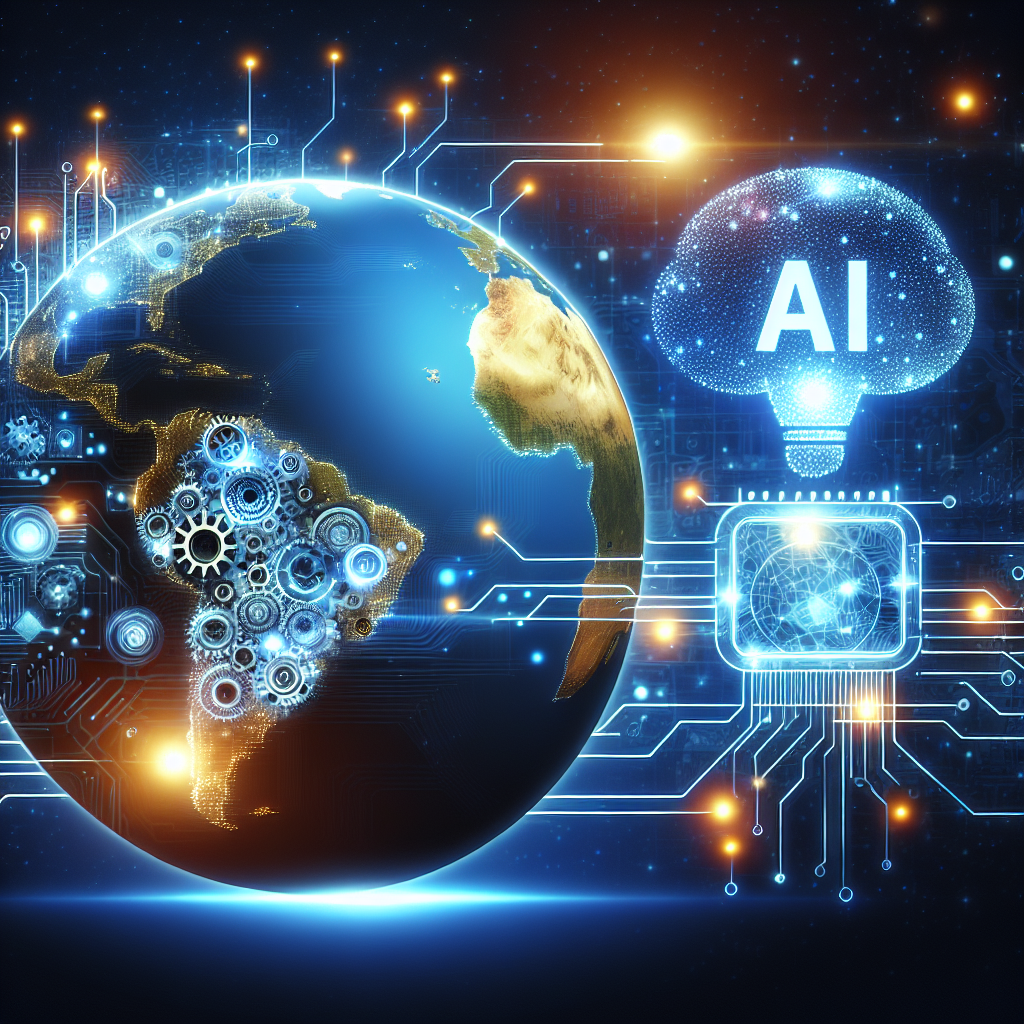Artificial Intelligence (AI) outsourcing has become a significant force in the global economy, transforming the way businesses operate and creating new opportunities for economic growth. As more companies across various industries look to leverage AI technologies to improve efficiency, reduce costs, and drive innovation, the impact of AI outsourcing on the global economy continues to grow.
AI outsourcing involves the use of external service providers to develop, implement, and manage AI solutions for businesses. This can include tasks such as data analysis, predictive modeling, natural language processing, and machine learning. By outsourcing these AI-related tasks, companies can access specialized expertise and resources that may not be available in-house, allowing them to accelerate their AI initiatives and stay competitive in the rapidly evolving digital landscape.
One of the key impacts of AI outsourcing on the global economy is the creation of new job opportunities. As companies invest in AI technologies and outsource AI-related tasks, they are creating a demand for skilled professionals with expertise in AI development, data science, and machine learning. This has led to a growing number of job openings in the AI outsourcing industry, providing employment opportunities for individuals with specialized technical skills.
Additionally, AI outsourcing has the potential to drive economic growth by enabling businesses to operate more efficiently and effectively. By leveraging AI technologies to automate routine tasks, analyze large volumes of data, and make data-driven decisions, companies can improve productivity, reduce operational costs, and drive innovation. This can lead to increased competitiveness, higher profitability, and overall economic expansion.
Furthermore, AI outsourcing can help businesses access cutting-edge AI technologies and expertise without having to invest in expensive infrastructure or hire specialized talent. By partnering with AI outsourcing providers, companies can leverage the latest AI tools and techniques to enhance their operations and drive business growth. This can level the playing field for small and medium-sized enterprises (SMEs) that may not have the resources to develop AI capabilities in-house, allowing them to compete with larger companies on a global scale.
Despite the numerous benefits of AI outsourcing, there are also challenges and potential risks that businesses need to consider. One of the main concerns is data security and privacy, as outsourcing AI tasks may involve sharing sensitive information with external service providers. Companies must ensure that appropriate security measures are in place to protect their data and comply with regulations such as the General Data Protection Regulation (GDPR) to prevent data breaches and privacy violations.
Another challenge of AI outsourcing is the potential impact on the workforce, as automation and AI technologies may lead to job displacement in certain industries. While AI outsourcing can create new job opportunities for skilled professionals, it may also result in the elimination of repetitive and manual tasks traditionally performed by human workers. Companies must carefully manage the transition to AI outsourcing to minimize the impact on employees and provide training and support for those affected by automation.
In conclusion, the impact of AI outsourcing on the global economy is significant and continues to evolve as businesses across various industries embrace AI technologies to drive innovation and growth. By outsourcing AI-related tasks, companies can access specialized expertise, drive economic growth, and create new job opportunities. However, businesses must also address challenges related to data security, workforce displacement, and regulatory compliance to reap the full benefits of AI outsourcing.
FAQs:
Q: What are the benefits of AI outsourcing for businesses?
A: AI outsourcing can help businesses access specialized expertise, drive innovation, improve efficiency, reduce costs, and create new job opportunities.
Q: What are the challenges of AI outsourcing?
A: Challenges of AI outsourcing include data security and privacy concerns, potential job displacement, and regulatory compliance requirements.
Q: How can businesses address data security concerns related to AI outsourcing?
A: Businesses can address data security concerns by implementing appropriate security measures, conducting regular audits, and ensuring compliance with data protection regulations.
Q: What impact does AI outsourcing have on the workforce?
A: AI outsourcing can create new job opportunities for skilled professionals but may also lead to job displacement in certain industries. Companies must manage the transition to AI outsourcing to minimize the impact on employees.
Q: How can businesses ensure regulatory compliance when outsourcing AI tasks?
A: Businesses can ensure regulatory compliance by selecting reputable outsourcing partners, conducting due diligence, and implementing data protection measures to safeguard sensitive information.

